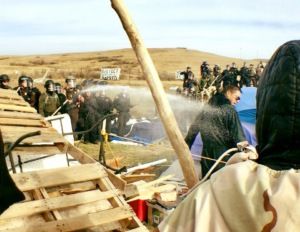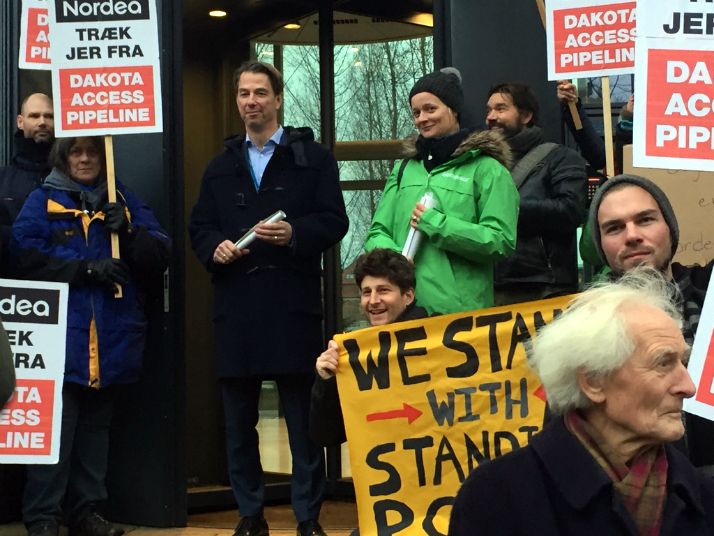News
Danish bank under fire for Dakota Access Pipeline investment
This article is more than 9 years old.
The Standing Rock Sioux Tribe pleads for Nordea to pull out its reported 360 million Swedish kroner investment in companies involved in the controversial project

The protest has stirred a nation (photo: Standing Rock Dakota Access Pipeline Opposition)
With Brexit, the circus of a US election and a host of favourite artists passing away, 2016 has been a year to forget for a lot of people. But for Nordea Bank, it’s been a downright travesty.
Last week, it was revealed that the bank had the most dissatisfied bank customers in Denmark thanks to its role in the Panama Papers scandal and IT issues. Now another ‘shitstorm’ beckons as Nordea has been drawn into the highly-contentious Dakota Access Pipeline debacle in the US.
The Standing Rock Sioux Tribe, which is protesting against the construction of the 1,886 km underground Dakota Access Pipeline stretching from North Dakota to Illinois, has written an open letter to Nordea urging the bank to cease its investment in firms associated with the pipeline project.
“I have recently learned that Nordea has invested a significant amount – reported to be 360 million Swedish kroner – in companies directly involved in the Dakota Access pipeline project: Energy Transfer Partners, Sunoco Logistics Partners and Phillips 66,” wrote Dave Archambault, the chairman of the Standing Rock Sioux Tribe, in the letter.
“On behalf of the Standing Rock Sioux Tribe, I am asking you to uphold your strong principles of corporate responsibility, and I am calling upon you to immediately withdraw your investments in the companies that are involved in the project.”
READ MORE: Nordea’s banking customers least loyal
Nordea investigating
Native American tribes and environmental organisations fear the pipeline will contaminate the Missouri River, one of the most essential water sources of the region. Their protests at the construction site have led to a number of dramatic confrontations with the local authorities.
Greenpeace Denmark handed over the Standing Rock Sioux letter to Nordea in Copenhagen, Stockholm and Helsinki. In Copenhagen, Eric Pedersen, the head of Nordic Invest, accepted the letter on the front steps of Nordea’s headquarters in Christianshavn.
“We can understand that this case is controversial and we take it very seriously,” said Pedersen.
“We are currently looking into the situation and we have contacted all the companies that have taken part in the construction of the pipeline. On Monday we will visit the area and have an opportunity to speak directly with the parties.”
Nordea contends it has repeatedly tried to get into contact with the Standing Rock Sioux in recent weeks, but its efforts have been in vain.











































